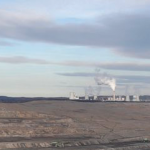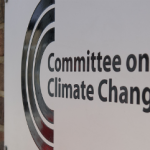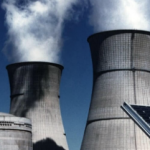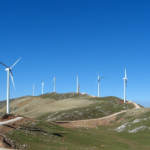Alex Schmitt, Christoph Kellermann, Calvin Triems and Huangluolun Zhou at Energy Brainpool have used their modelling tools to update their predictions of how the European electricity market will develop over the next 30 years, given a target of 99% emission-free generation in 2050. Projections are made on generation (mix and volumes) and price. The big change from their last predictions is the Russia-Ukraine war and Europe’s determination to ramp … [Read more...]
Anna Zalewska MEP Q and A: “We cannot drop coal from our energy mix in a decade”
Over the past twelve months Energy Post has provided readers with two well-attended panels (Modernisation Fund, Just Transition Fund), sponsored by PGE Poland, focussing on EU mechanisms and policies designed to support countries like Poland (plus other carbon-intensive and/or lower-gdp Member States) with their decarbonisation strategy. Today, Anna Zalewska MEP (ECRG and member of the ENVI committee of the European Parliament) makes use of … [Read more...]
Net Zero UK: chance for Parliament to restore international leadership credentials
The UK may be in turmoil politically thanks to Brexit, but it has revived its efforts to take a leadership position on climate change, after the Committee on Climate Change (CCC) recommended that the government adopt a new target of net-zero greenhouse gas (GHG) emissions by 2050, a tightening of the current goal to cut emissions by 80% from 1990 levels. Mike Scott reports for Energy Post … [Read more...]
EXCLUSIVE INTERVIEW – GCCA’s Claude Lorea: “How can we provide the world with the concrete it needs in a sustainable way?”
Concrete is, after water, the most consumed resource on the planet and no other man-made material is more widely used. Without it, there are no buildings, bridges, dams or roads – no Sydney Opera House, no Hoover Dam or Golden Gate Bridge, no Pantheon in Rome. It is no surprise, then, that it has significant environmental impacts. More than 4bn tonnes of cement, the main ingredient of concrete, are produced every year leading to between 5 and 8% … [Read more...]
New “Gas for Climate” scenarios: can green gas and hydrogen save gas pipelines?
Gas has a key role to play in decarbonising the energy sector. Until a comprehensive clean energy network can accommodate variable renewables using storage, baseload power will be needed. Natural gas is a lower carbon option than coal, so there is a strong case for it to be the first-choice bridging fuel towards a net-zero energy economy. However, exactly how much gas, what type of gas and how existing infrastructure can store energy in the form … [Read more...]
Can nuclear compete for a bigger role in the transition?
With plans to phase out coal-fired generators in most of Europe, nuclear is trying to compete with gas to become the most viable baseload power source to accompany renewables on the path to net-zero emissions. Both technologies have their advantages. Gas is competitively priced while nuclear generates power with almost no emissions. Right now, gas's cost advantage is evidently great enough to tip the balance. If nuclear advocates are to … [Read more...]
South East and Eastern Europe PART II: EU can help bring far-ranging benefits of a meaningful energy transition
In Part 1 of this special report, Komila Nabiyeva demonstrated how investment conditions in South East and Eastern Europe, South Caucasus and Central Asia make it almost impossible to justify development of renewables infrastructure on any great scale. That being the case, she calls on the EU to play a greater role. Their initiatives are already making a difference. This is encouraging because it shows that with more EU engagement, a more … [Read more...]
Billions in private investment waiting for clearer action and guarantees from governments on pathway to 2050
Last month we reported how weak commitments by some EU states were putting a successful transition at risk. Marcela Scarpellini of right. based on science focuses on how this confusion impacts the funding of the transition, and the essential role of private investment. $16.5 trillion needs to be put into energy efficiency and low-carbon technologies by 2030 to hold the temperature increase below 2°C by 2050, says the IEA. Governments alone cannot … [Read more...]









